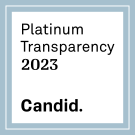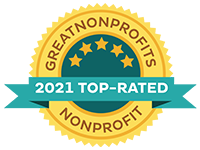Public vs Private Schools
There are so many factors on what to decide in sending your child to the right school – for instance, private or public schools? How do you know which is better? What do you need to know before enrolling?
In my experience, I was enrolled to a public school throughout my childhood life while my brother was enrolled in a private school. Here is an explanation for a parent who may need help in deciding.
Public schools have different factors than private schools. Here are some factors:
- Less Payment
a. Parents don’t need to worry about high tuition fees. Public schools are free to attend and just needs some paperwork from the parents.
b. There is also no need to pay for textbooks up until 12th Grade. The public schools that I attended had the textbooks in the library and the students had the schedules on what they need.
c. Lunches were affordable. Back then, it was like, less than $10.
d. The students who do home-schooling don’t need to wear uniforms as there is no dress code policy in effect. - What to Expect
a. After School Programs – students are able to go to programs where there are tutors or teachers that could help them with their homework.
b. Diversity – within public schools, there are students from all over the world. They’re from Japan, China, Philippines, Chicago, etc … students will be able to make friends with people from different backgrounds.
c. The possibility of more bullying.
d. The public schools that I went to didn’t have uniforms.
e. When I was in special education, the buses were free.
f. Within the public schools, there are examinations where students have to pass. For example: SAT and there is a high fee for it. I believe that the fee could be like $100. When I took it, I think there were three chances and I passed it on the second try.
Here are factors on what to expect from a private school:
- More Payment
a. High Tuition – for the private school that my brother went to, my parents had to pay like $500 monthly. That was back in the 90’s, nowadays it’s more.
b. Textbooks – even in Elementary School, you have to pay for textbooks!
c. Paid buses.
d. Expensive Lunches – it depends on what school, but you may have to only pay monthly.
e. Students wear uniforms, thus parents may need to buy uniforms for sizes or replacements throughout the years. - What to Expect
a. Less Diverse – students are within the same background and thus they aren’t able to make friends from those in different backgrounds.
b. Less Students – unlike in public schools, there are at least less than 30 students in a classroom, according to my brother.
c. There is no help for special education, which is why I didn’t attend a private school.
d. The possibility of less bullying.
With these factors, parents are able to decide which school they want to send their child to. If I was choosing a school for my own child, I might choose a public school because it has more help along with less payment.
But it is up to the parents. Before deciding which school, more research needs to be done and if this doesn’t help, just take your time and think carefully, no need to rush things in helping your child!
Common Core
The common core currently affects English, Language Arts, Social Studies and Math. For Mathematics – you are to estimate the answer, not to get it right. If you get an answer wrong but can state the mechanics of how you came about to this answer, you may still get marks. For literature, western classics are being removed because it’s elevating the student morally and to get them intellectually curious.
Issues with Common Core:
- Complete lack of local and regional input
- Standards are copyrighted and cannot be changed
- Imposed regardless of demographic and geographic needs or differences
- It is a cookie cutter design – that is doomed to fail
All curriculum and tests will be aligned towards Common Core. This includes the ACT, PSAT and SAT tests. If you can’t answer the questions the way Common Core wants you to, you will fail the ACT & SAT tests, which are instrumental in being accepted in college. Thus home-schooled students will be failing but the public sector will be improving.
Standardized Testing
Issues with Standardized Testing:
- Students will cheat to have a better score on the exams
- Affecting salaries and job securities for the teachers
- No feedback on how to perform better
- No creativity
- No diversity
- Favoring those who has socio-economic advantage
- More learning about the test
- Artificial learning environment
- Stress
- Dehumanizing
- Developed by mediocre minds
- False sense of security
- Exists for administrative, political and financial purposes, not for educational ones
What is Standardized Testing?
- Requires all test takers to answer the same questions or a selection of questions from a common bank of questions.
- Standardized Testing is scored in a “standard” or consistent manner, which makes it possible to compare the relative performance of individual students or group of students.
Standardized tests can include true or false, short-answers, essays, mix of questions and multiple choices. Multiple and true or false questions are scored by computers while essays have to be scored by humans. It may be used for a wide variety of educational purpose – to place students in programs or course levels.
Examples of common forms of standardized testing:
- Achievement tests
- Aptitude tests
- College – admission tests
- International – comparison tests
- Psychological tests
Reforming schools and improving student achievement:
- To hold schools and educators accountable for educational results and student performance
- To evaluate whether students have learned what they are expected to learn
- To identify gaps in student learning and academic progress
- To identify achievement gaps among different student groups
- To determine whether educational policies are working as intended
Debating:
Tend to focus on the ways in which the tests are used and whether they present reliable or unreliable evaluations of student learning, rather than on whether standardized testing is inherently good or bad.
References:
What is Common Core? By NHEG
Standardized Testing:
Edge.ascd.org/blogpost/15-reasons-why-standardized-tests-are-problematic









